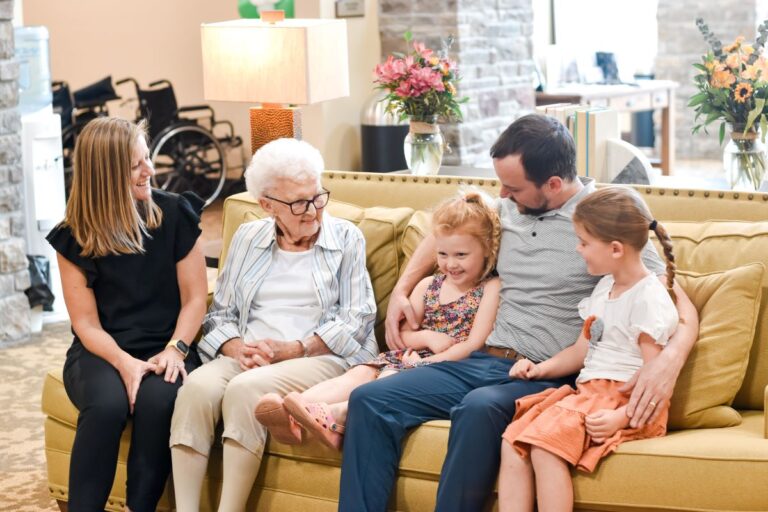
About the series: According to Elisabeth Kübler-Ross’s model, there are five stages of grief: denial, anger, bargaining, depression, and acceptance. While this model explains the grief cycle based on bereavement, we’re going to explore how loved ones and those with Alzheimer’s navigate the cycle as the disease progresses. Last week we talked about bargaining (click here to find that blog if you missed it) and how it affects not only the caregiver but also the person with Alzheimer’s themselves. This week we are diving into depression.
Melanie Williams shared that she felt like she lost an important connection because of Alzheimer’s. She explained, “My first mom will never be back. Each step is further into the disease. Even though you know there might be plateaus, it doesn’t get better. I’ll never be able to share new experiences—when you’ve shared everything with them and they’re your confidante, you lose your sounding board.”
Facts About Depression
The Alzheimer’s Association website tells us that up to 40% of those diagnosed with Alzheimer’s suffer from depression. Because Alzheimer’s disease also impacts effective communication, someone with both diagnoses may be unable to explain how they feel, and their symptoms might be hard to distinguish.
The Family Caregiver Alliance reports that caregivers supporting someone with dementia may be twice as likely as other caregivers to experience depression. When someone you love is forgetting their life and all the ways they’ve made your life amazing, too, it’s likely to send you bouncing around through depression and other emotions of the grief cycle.
Find Senior Living Near Me
Once diagnosed, a medical doctor can offer treatment options for depression, such as counseling or medications. Medications can alleviate the symptoms, but they depend on each person’s needs.
If you’re supporting a loved one with depression and Alzheimer’s, pay close attention to them. They may respond to their diagnoses in a way you never thought possible. Yale School of Medicine reports that during the first few months following a dementia diagnosis, those aged 65-74 years old had an increased risk of suicide.
For family members or caregivers experiencing depression, support groups may be very beneficial, along with doctor-prescribed measures. A friendly chat with others who are helping their loved ones or clients manage symptoms of Alzheimer’s can help you feel validated.
Lifestyle choices like healthy eating, sleeping, and working out can help alleviate symptoms of depression. It’s important not to get caught up in unhealthy coping mechanisms, such as alcohol or drugs, to manage depression symptoms.
Changing Roles
If your parent is suffering from Alzheimer’s, you may find yourself trying to stay very strong to keep them calm and happy. It may feel like you’re the parent and they’re the child. That is not to compare those with Alzheimer’s to children in any regard, but just as parents offer their children comfort and guidance, you’re probably doing the very same thing for them in their time of need. Sometimes, that role reversal is so hard to cope with that it can create distance between those with Alzheimer’s and their loved ones.
Don’t Let Changes Keep You Away
Alzheimer’s makes people different. It’s important to accept the new “them.” Sometimes, the grief or even depression experienced among family members is too strong, and they opt out of visiting once a person changes beyond their comfort level. It’s crucial to meet the disease where and for what it is.
At the beginning of this series, we explained the importance of receiving a diagnosis and learning about Alzheimer’s. If a family member refuses to visit because they see their loved one with Alzheimer’s as someone they no longer recognize, encourage them to learn more about it. Sometimes, a true understanding of the disease can help change their perspective.
When you stop correcting your loved one or hoping they will return to how you’ve known them, it speaks to the “Acceptance” stage. Join us next week for our final blog in the series “Acceptance.”




